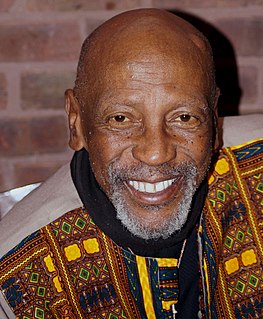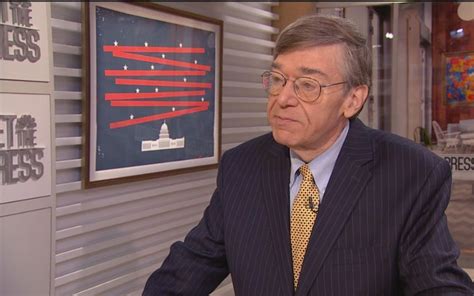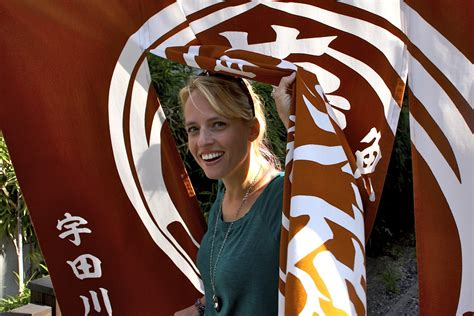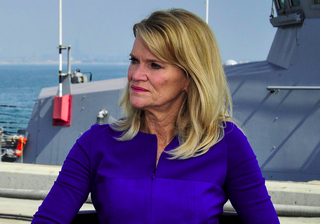A Quote by Annia Ciezadlo
There's a long history in the Middle East of "bread intifadas," starting with 1977 in Egypt, when Anwar Sadat tried to lift bread subsidies. People rebelled and poured into Tahrir Square, shouting slogans against the government just like they did earlier this year. Sadat learned his lesson and kept bread subsidies in place, and so did a host of other Middle Eastern dictators - many of whom were propped up for years by the West, partly through subsidized American wheat.
Quote Topics
Against
American
Bread
Dictators
Did
Earlier
East
Eastern
Egypt
Government
His
History
Host
Just
Kept
Learned
Lesson
Lift
Like
Long
Long History
Many
Middle
Middle East
Middle Eastern
Other
Partly
People
Place
Sadat
Shouting
Slogans
Square
Starting
Subsidies
Tahrir Square
Through
Tried
Up
Were
West
Wheat
Whom
Year
Years
Related Quotes
Shortly after Sisi was elected, his administration announced cuts of 'subsidies' on natural gas and energy consumption and lowered those for bread and other goods. Such action was taboo during the Mubarak and Sadat presidencies for over half a century, but Sisi was able to convince Egyptians he was taking necessary action.
If you look at the list of the top wheat importers for 2010, almost half of them are Middle Eastern regimes: Egypt, Algeria, Iraq, Morocco, Yemen, Saudi Arabia, Libya, and Tunisia. Egypt is the number-one importer of wheat in the entire world. Tunisia leads the entire world in per capita wheat consumption. So it's no wonder that the revolutions began with Tunisians waving baguettes in the streets and Egyptians wearing helmets made of bread.
Corn is already the most subsidized crop in America, raking in a total of $51 billion in federal handouts between 1995 and 2005 - twice as much as wheat subsidies and four times as much as soybeans. Ethanol itself is propped up by hefty subsidies, including a fifty-one-cent-per-gallon tax allowance for refiners.
Rulers like Egypt's Gamal Abdel Nasser started subsidizing bread as a way to buy loyalty, or at least obedience, and this system became so pervasive that the Tunisian scholar Larbi Sadiki described countries who used it as dimuqratiyyat al-khubz - "democracies of bread." But the problem with this system of offering bread in exchange for genuine democracy is that it can never last - sooner or later, the bread will run out, and people will start demanding bread and roses too.
AI works really well when you couple AI in a raisin bread model. AI is the raisins, but you wrap it in a good user interface and product design, and that's the bread. If you think about raisin bread, it's not raisin bread without the raisins. Right? Then it's just bread, but it's also not raisin bread without the bread. Then it's just raisins.
In the Middle East, bread is so essential to everyday life that word for it in Egyptian Arabic is aish, which means life. It's always been the staple grain. But the predicament is that the Fertile Crescent, where wheat cultivation began, has now become the part of the world most dependent on imported wheat.
Toast is bread made delicious and useful. Un-toasted bread is okay for children's sandwiches and sopping up barbecue sauce, but for pretty much all other uses, toast is better than bread. An exception is when the bread is fresh from the oven, piping hot, with butter melting all over it. Then it's fantastic, but I would argue that bread fresh out of the oven is a kind of toast. Because I'm an asshole and I refuse to be wrong about something.
A bit of theory as we settle down for lunch: the waiter's treatment of Kitty is actually a kind of sandwich, with the bottom bread being the bored and slightly effete way he normally acts with customers, the middle being the crazed and abnormal way he feels around this famous nineteen-year-old girl, and the top bread being his attempt to contain and conceal this alien middle layer with some mode of behavior that at least approximates the bottom layer of boredom and effeteness that is his norm.
The American administration obviously has supported the dictators in the Muslim countries and the Muslims are rising, as you can see their boiling in Libya and Egypt and many other countries and they're rising up against the oppression and the Americans should stay away from trying to, if you like, put another dictator in place, and I don't think the American interest in the current time in the Middle East with their presence, rather they should withdraw their forces, they should withdraw their own personnel, this is a very insecure time for the Americans I think.
































